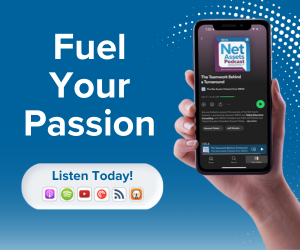Article by Scott Allenby, Proctor Academy
All photos courtesy of Proctor Academy
Being an educator requires a level of optimism rarely seen in other professions. As students, we learn from our earliest years that teachers believe in us. They dedicate themselves to watering the seeds of knowledge in us and refuse to accept drought. This optimism permeates many layers of educators’ lives and filters through the entire educational institution. When students, faculty and staff pursue daily life through a lens of hope, optimism can be a double-edged sword because it fails to prepare us for the heavy knock of tragedy at our door.
We, at Proctor Academy, a grades 9-12 boarding school in New Hampshire, heard this knock twice in an eight-month period. Following the unexpected deaths of two beloved faculty members, we stumbled away, arm in arm with those around us who share our grief, with a rare perspective we want to share in hopes that other schools can learn from the challenges we have faced.
The optimism embedded in education may seem at odds with the harsh realities of wills, financial planning and employee education around these matters during the most unfortunate circumstances. The business office must walk a tightrope of optimism and reality, carefully educating employees on best practices without dampening the positive energy that makes our schools the places we know and love.
As we emerge from a trying season of loss in our community, we have learned four lessons from our experiences that we hope trigger important conversations among business officers, heads of school and others in leadership at peer schools.
Communicating Benefits
Educational institutions sometimes fail to put into practice the same learning opportunities for our employees that we offer our students. At Proctor, we have learned we must be intentional in educating employees about the benefits available to them and their closest contacts in the case of their death or serious injury.
Our work with students teaches us that repeated exposure to information delivered through a variety of mechanisms is critical to deep learning and retention.
From a new employee’s first day at Proctor, Rachel MacDuffie, our director of human resources, imparts the importance of having a living will that clearly states the employee’s wishes should he or she die or become incapacitated and no longer able to make decisions. This can shade the tone of an otherwise cheery onboarding conversation, but establishing a culture of planning within our school community is critical.
We extend the foundation of this education, making sure employees have full understanding of their 403(b) plans, life insurance and financial advising, and that their beneficiaries are clearly designated on appropriate forms.

Our work with students teaches us that repeated exposure to information delivered through a variety of mechanisms is critical to deep learning and retention. The business office likewise ensures education about employee benefits is not a one-time annual event. We rely on partnerships with companies like Borislow Insurance and Health Plans, Inc. to bring in experts who help educate our employees throughout the year during start-of-year meetings, lunch meetings or one-on-one sessions with a personal financial advisor.
We want employees to know that in the case of a tragedy, their families will have access to grief counseling. Their benefits include resources to help with the logistics of moving a body and paying for associated costs. We have found that when you relay this kind of information in a time of extreme grief, many of those close to a departed loved one can take in only limited information. Communicating benefits clearly and repeatedly before a tragedy should help employees make full use of their benefits should they need to use them.
Continual Engagement
Just as our teachers recognize that simply providing educational materials will not enable most students to truly learn, Proctor’s business office has gone beyond merely talking about benefits. We have developed a multi-pronged approach to ensure employees are engaged and fully understand the application of their benefits to various situations. All of us are busy, and when a task is uncomfortable, as financial and tragedy planning is for most of us, employees are more likely to say, “I’ll get to that later.”

At Proctor, we periodically send emails with checklists about planning and reminders to complete or change appropriate forms. Since instituting additional measures to communicate benefits in varied ways, responses to these emails have improved. We know, however, that the open rate on these types of emails still hovers in the 15 percent rate at best. Therefore, Rachel is persistent and follows through when an employee does not return a necessary form. Furthermore, when she learns of a life-changing event, such as a divorce, death or serious injury, she follows up with that employee face to face, in a sensitive and respectful way. Her goal is to remain human and work intentionally to meet our employees where they are.
Financial and estate planning will most likely not be your employees’ favorite “class.” We have found that presenting information in digestible chunks helps engage different groups of employees. Working toward short-term goals can create small pockets of evolution within your community.
You might consider identifying ambassadors within your employee base who can help affect grassroots change. Who are the employees who have a clear financial and estate plan in place? Who are their peers that would listen and engage with them around this issue? How can we create an incentive plan for these employees to hold small group meetings that may feel less intimidating and less stressful than a meeting with HR or an outside vendor?
These measures have helped Proctor work toward the ultimate goal: our employees having the information they need, such as links, phone numbers, and forms as well as connections with colleagues who can provide additional help and resources.
Developing an Action Plan
Human resources should know all benefits available to a school and record them in an action plan. When tragedy knocked at Proctor, we turned to a program called Pro Response provided by our liability insurance, United Educators, for immediate coverage of costs associated with public relations and communications, grief counseling and other emergency services. Our Employee Assistance Program through Mutual of Omaha provided grief counseling for employees and families who experienced trauma. Experts at Borislow Insurance advised families on benefits, transportation of an injured family member, transportation of a body across state lines, and myriad legal issues associated with death and injury. If an employee injury or death stems from work, our workers’ compensation insurance provider Memic can provide benefits and services for employees and advice for the employer.
What happens when the school loses a longtime teacher who has impacted thousands of alumni or runs a signature program? How will that impact alumni and prospective students?
At Proctor, we developed a protocol to notify family, employees, students, alumni and other members of the school community. We considered in what order information should go out to constituents — who should learn what when — as well as how the school would handle media inquiries, social media and online conversation. Because the information is so sensitive, this protocol will be different than, say, communicating a gas leak on campus, which can be much more straightforward.
As untimely and self-focused as it may sound, we also had to consider “brand” implications. What happens when the school loses a longtime teacher who has impacted thousands of alumni or runs a signature program? How will that impact alumni and prospective students? We had to provide resources and information for them as well.
Schools should be prepared to modify their plans at a moment’s notice, as they would with any emergency plan. Every situation is unique and requires dynamic implementation. A paralyzing injury on campus is different than an unexpected death, for example. Understanding the resources available and developing flexible protocols will help address the specific needs of each situation.
Remembering and Moving Forward
Finally, the timing and manner of memorializing those we lost and rehiring new faculty were key considerations. “Don’t just do something for the sake of doing something; be patient,” is something that John Ferris, our chief financial and operating officer, said helped the business office understand when different processes might be more appropriate.
Community members may want to leap into action immediately upon learning of tragic news, but decisions made when emotions are raw may not serve everyone best.
The school community needed time to grieve. In the immediate aftermath, we provided a space on campus for community members to share their thoughts together, in addition to individual grief counseling. We left our lost faculty members’ offices untouched to allow community members to visit and remember. We developed memorials and had a formal dedication later on, after people had more time to process their emotions. Community members may want to leap into action immediately upon learning of tragic news, but decisions made when emotions are raw may not serve everyone best.
We found patience to be prudent in rehiring as well. We did not rehire for the positions until the start of the next school year; other faculty members covered their academic and boarding commitments. And when we did rehire, the positions were reconfigured so new faculty members would not have to step into shoes with certain expectations or the immediate memory of the ones we lost, but could start fresh in a new role.
No school wants to face these kinds of events, but preparing in advance can help everyone — employees, students, families, alumni and community members — handle and process what has happened. Just as our teachers meet our students where they are, we in school administration aim to meet our employees where they are, to help them through good times and prepare them for difficult ones.
Scott Allenby is director of communications and marketing at Proctor Academy, a grades 9–12 boarding school in Andover, New Hampshire.Download a PDF of this article.





